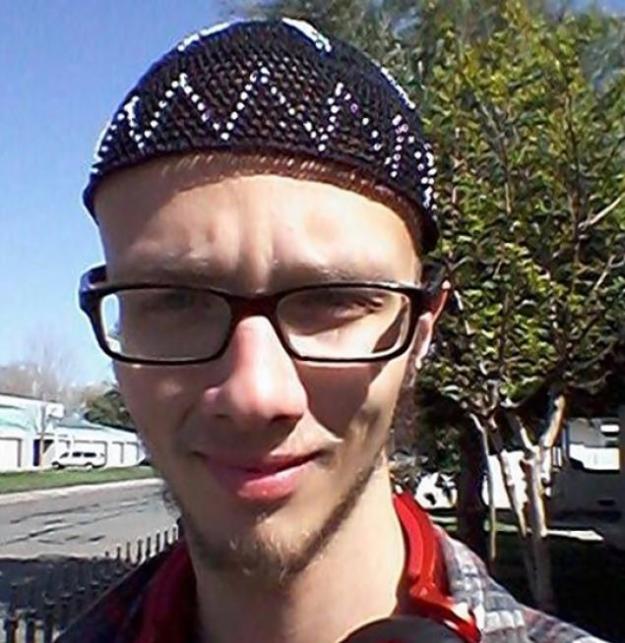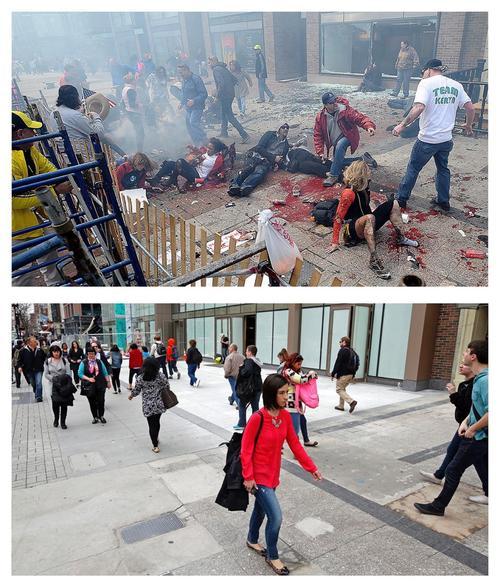In yet another case of a home-grown terrorist, Nicholas Teausant of Acampo, California, was arrested early Monday in the State of Washington and was charged with a single count of attempting to Provide Material Support to a Foreign Terrorist Organization. He was plotting to bomb the Los Angeles subway and was planning on leaving the U.S. to join a Syrian terrorist cell.
Teausant, a 20 year old student at San Joaquin Delta Community College in Stockton, Ca. and a recently discharged National Guard member, began expressing in his online photography account a desire to see America’s downfall. He wrote “I would love to join Allah’s Army, but I don’t even know how to start,” the US Federal complaint outlined.
in his online photography account a desire to see America’s downfall. He wrote “I would love to join Allah’s Army, but I don’t even know how to start,” the US Federal complaint outlined.
On August 5th, he allegedly posted online again, “anyone know where I can get the long Mujahid pocket book,” which is described as a how-to-guide for becoming a “Lone Wolf” terrorist. The book includes articles on bomb-making and remote-control detonation.
A paid confidential source who was allegedly working with the FBI assisted in the investigation after meeting with Teausant for the first time in October through a mutual connection of a Muslim friend.
Teausant, a recent Muslim convert, had admitted to the informant that he was sending cash overseas to support the Mujahedeen.
As their friendship grew between the informant and Teausant, the two discussed numerous other ideas for terrorist activity that never came to fruition, including a plot supposedly hatched during a camping trip with seven other people to bomb the Los Angeles subway system last New Year’s Eve or New Year’s Day.
When an informant questioned Teausant about what happened to his plan, Teausant responded that it was canceled because “they” had been “tipped off.”
According to the complaint, Teausant had been planning since October to support the efforts of the Islamic State of Iraq and the Levant, a group that has been fighting in Syria’s three-year-old civil war and is designated by the U.S. State Department as a terrorist organization.
The Islamic State of Iraq and the Levant are breakaway organizations from al-Qaida that are considered some of the most brutal groups fighting in Syria’s civil war, made up largely of non-Syrian Islamic militants. They have seized several areas in Syria as it fights the government of President Bashar Assad.
Teausant joined the National Guard in April 2012, but was recently discharged after failing to meet the minimum qualifications to continue due to his lack of required academic credits. He never attended basic training.
Teausant’s plans included, appearing in videos for the group, without covering his face. He said he wanted to be “the one white devil that leaves their face wide open to the camera”, the Federal complaint stated.
The FBI informant put Teausant in contact with a “mentor” — in reality, an undercover Federal Agent — who could purportedly approve his efforts to join the extremists. Early this month, the “mentor” blessed Teausant’s travel and he boarded a train for Seattle on Sunday night, the complaint said.
When the bus arrived in Blaine, just south of Vancouver, British Columbia, U.S. Customs and Border Protection stopped it and questioned Teausant about where he was headed. He responded that he was traveling to Vancouver and was arrested, the complaint said.
If convicted, Teausant faces a maximum statutory penalty of 15 years in prison and a $250,000 fine.
Many times we have seen “home-grown” terrorism, Herald Square Bombing Plot in 2004, Fort Hood Shooting in 2009, Times Square Bombing Attempt in 2010 and Boston Marathon Bombings in 2013.
U.S. security officials have been warning for years that one of their biggest challenges is detecting home-grown terrorists. Extremists who have grown up or lived here for years tend to blend in easily and were seemingly fully integrated into American society.
Since the Sept. 11, 2001, attacks, U.S. authorities have become far more sophisticated in identifying potential suspects and keeping them out of the U.S., creating a major barrier for terrorist groups trying to enter the country with violent intent.
Those integrated American citizens are exactly the type of recruits that international terrorists groups are looking for.
Counter-terrorism officials have become adept at spotting terrorism suspects who travel overseas to get training or arrange large money transfers to support terrorist groups. However, home-grown followers who secretly and quietly embrace violent extremism after watching al-Qaida propaganda don’t raise those same flags


